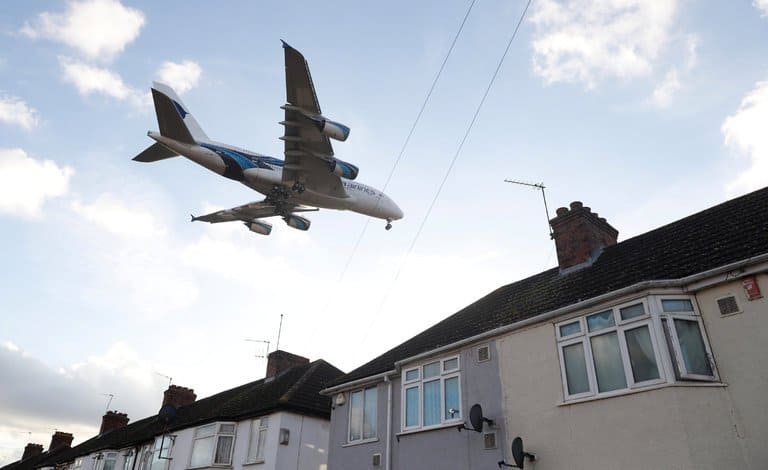
The days may be numbered for the world’s largest passenger aircraft.
Airbus, the European aerospace group that makes the A380 superjumbo, said on Monday that it would have to end production of the plane if its only major customer, Emirates, did not order more.
The admission by John Leahy, the company’s chief operating officer, was the latest indication that Airbus miscalculated more than two decades ago when it bet that clogged runways would create demand for larger planes that could deliver more people with fewer landing slots. Instead, airlines bypassed the major hubs and ordered midsize planes that could fly directly between regional airports.
“The A380 was better suited to 1995, before air routes fragmented,” said Richard Aboulafia, vice president of analysis at Teal Group Corp., a consulting firm in Fairfax, Va.
Airbus said Monday that it has not given up on the plane, but acknowledged that it is endangered.
“If we can’t work out a deal with Emirates, I think there is no choice but to shut down the program,” Mr. Leahy said during a webcast with journalists.
“But,” he added, “I’m hopeful that we’ll work out a deal.”
Emirates, based in Dubai, the United Arab Emirates, did not respond to a request for comment.
While it would be premature to write the A380’s obituary, there is little doubt that the double-decker plane — once touted as the future of aviation — has been an enormous disappointment and a financial disaster for Airbus, the most formidable competitor to Boeing in the passenger airplane market.
When Airbus started delivering the A380 a decade ago, after spending $25 billion to develop it, the company based near Toulouse, France, saw the plane as the solution to airport congestion and to increased demand for air travel. Only so many planes can land at an airport in any given day, so Airbus reasoned that planes carrying more people would allow airports to absorb more passengers.
The A380 can carry more than 500 passengers while also offering amenities like showers, first-class suites and a bar.
But the airline industry responded by increasing traffic to smaller airports, a change that favored Boeing and its 787 Dreamliner, a midsize, wide-bodied plane that can carry a maximum of 330 passengers. The Dreamliner has two engines, making it much less expensive to maintain than the four-engine A380.
Mr. Aboulafia of Teal Group noted that it is now possible to fly directly to Spain from Washington, D.C., without passing through a large hub like London or Frankfurt.
“As smaller, more efficient planes flood the market,” he said in an email, “new city pairs are being created almost every day, killing the case for larger aircraft.”
Airbus did not book any orders for the A380 last year, the company said on Monday. In fact, orders for two planes were canceled.
The superjumbo’s poor performance overshadowed an otherwise decent year for Airbus, which said on Monday that it delivered 718 aircraft in 2017, a 4 percent increase from the previous year. The company said it had a backlog of orders worth $1.1 trillion.
Airbus could further benefit from a general upswing in commercial air travel, and it may profit from a trade dispute between its archrival Boeing and Bombardier of Canada.
The United States Commerce Department imposed punitive tariffs on Bombardier last year after Boeing accused it of receiving unfair subsidies from the Canadian government. Bombardier is challenging the tariffs, but has also struck a deal to build its new CSeries midrange planes at an Airbus factory in Alabama. That could allow Bombardier to avoid the penalties.
Airbus’s best-seller by far in 2017 was the A320 line, versions of which can carry up to 240 passengers, or about half as many as the A380.
Mr. Leahy, the Airbus chief operating officer, said on Monday that the A380’s best days were ahead. Passenger traffic is doubling every 15 years, he said, meaning that the original rationale for the model still holds.
Airbus, as a result, is still betting that airlines flying between large, highly congested hubs in London or New Delhi will have no choice but to buy larger planes if they want to continue to grow.
“If people want to fly, they need to fly in bigger aircraft,” Mr. Leahy said. “This is an airplane whose time will come.”
But he acknowledged that, until that day arrives, Airbus needs a minimum of six to eight orders a year to keep production alive at the A380’s final assembly plant near Toulouse. For the moment, he said, the only likely customer for those planes is Emirates.
“They are probably the only one who has the ability right now,” Mr. Leahy said.
